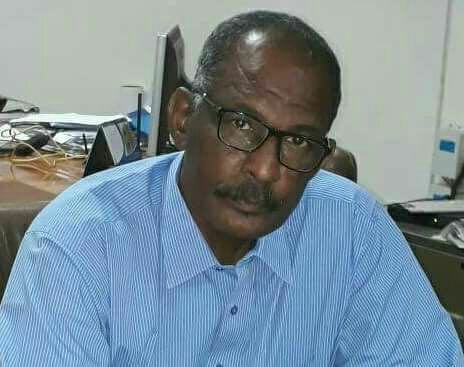“Al-Qouni … in The Hague”

By Mohammed Wada’a
On December 6, 2024, the Dutch Foreign Ministry issued a statement distancing itself from a workshop held in The Hague titled “Wars and Prospects for Building a New State in Sudan: Challenges and Opportunities.” The event was organized by The Hague Peace Projects in collaboration with the Institute of Social Studies and Alfanar Organization. The ministry clarified that it had no involvement in organizing the workshop, inviting participants, or facilitating attendance. It denied any connection to the event, which allegedly involved members of Sudan’s National Umma Party supporting the Rapid Support Forces (RSF), according to Nabd platform.
The Dutch Foreign Ministry refuted “misleading information” circulating about the event and stated that no ministry representatives participated in any capacity, nor did they receive or host any speakers involved in the workshop.
On December 11, 2024, The Sudan Conference – The Hague Peace Projects released a statement saying that they organized a conference on December 6–7 titled “Wars and Prospects for Building a New State in Sudan: Challenges and Opportunities” at the Institute of Social Studies in The Hague, in collaboration with Sudanese individuals. The conference aimed to facilitate discussions on sustainable peace.
According to the organizers, visa applications for several key speakers from outside Europe were rejected, and some had to cancel at the last minute. To avoid canceling the event, one of their partners, Alfanar Organization, suggested inviting speakers already in Europe for another workshop in Geneva. These individuals had valid visas, though the organizers did not know them personally. One of the speakers, who introduced himself as “Ahmed Musa,” was later revealed to be a political figure operating under a false identity. The organizers later discovered that this individual was on the U.S. sanctions list, and they regretted giving him a platform to speak.
Although the statement avoided explicitly naming the individual, it became evident that “Ahmed Musa” was none other than Al-Qouni Hamdan Dagalo. His accomplices in this deception included Alfanar Organization, led by a prominent National Umma Party member, Fathi Ibrahim. The scheme was exposed by Sudanese activists and politicians in The Hague, who alerted the university administration about Al-Qouni’s use of a false identity. Questions remain about whether his passport bore the name “Ahmed Musa” or “Al-Qouni Hamdan Dagalo,” especially given his designation by the U.S. Treasury.
Al-Qouni’s Sanctions and Actions
On October 9, 2024, the U.S. Treasury Department sanctioned Al-Qouni Hamdan Dagalo under Executive Order 14098 for leading efforts to supply arms to perpetuate the war in Sudan. The U.S. Treasury stated that Al-Qouni had been involved in purchasing weapons and military equipment that enabled RSF forces to carry out operations, including attacks on El-Fasher, the capital of North Darfur.
U.S. State Department spokesperson Matthew Miller added that Al-Qouni’s actions fueled the war and led to brutal atrocities by RSF forces, including war crimes, crimes against humanity, and ethnic cleansing. Al-Qouni allegedly controlled several RSF-affiliated companies, including Tradive General Trading, which imported arms and vehicles for RSF. He also served as the RSF’s procurement director.
The U.S. Treasury regularly circulates its sanctions decisions to global partners to monitor compliance. Given the scope of these sanctions, questions arose about how Al-Qouni managed to travel internationally, including his use of passports and aliases.
The Workshop Fallout
The Institute of Social Studies halted the workshop, but its recommendations were still issued. It remains unclear whether legal action was taken against Al-Qouni or Alfanar Organization. There is speculation that the Trump administration might question Dutch authorities’ leniency regarding U.S. Treasury sanctions, applying pressure on institutions like the International Court of Justice in The Hague.
Al-Qouni reportedly traveled from Nairobi to South Africa, then to Geneva, and finally to The Hague within a few weeks. The exact number of passports and identities he used during these trips remains unknown.



